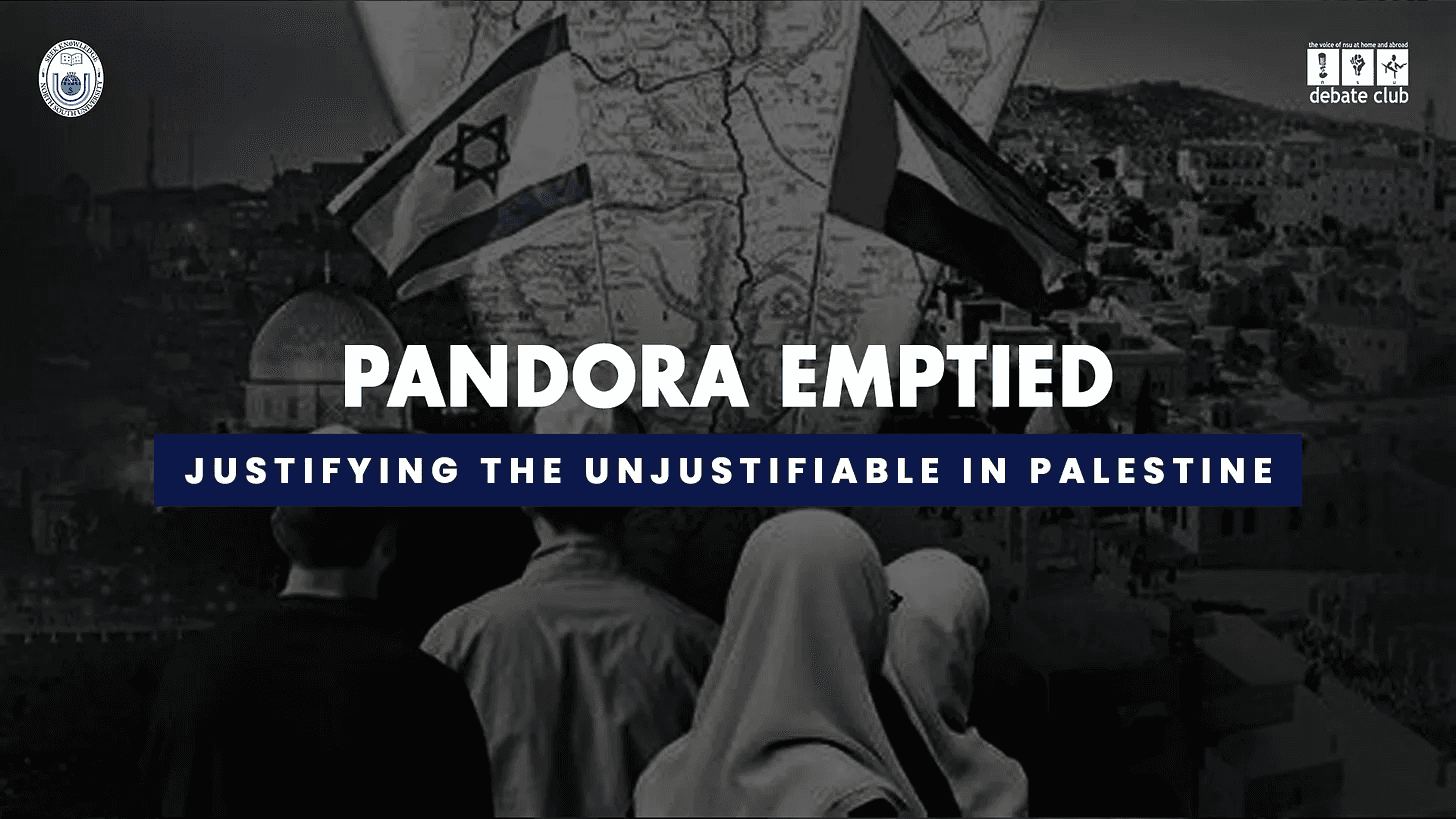Pandora Emptied: Justifying the Unjustifiable in Palestine
Buried beneath the blood-soaked sands of history lies a shattered dream of peace, as Palestinians endure relentless oppression. To understand how it all went wrong, we need to look further back. Palestine, once part of the Ottoman Empire until World War I, holds deep significance in Judaism, Christianity, and Islam. It is tied to the prophets Ibrahim (Abraham), Musa (Moses), and Dawood (David), who are revered across all three faiths, representing a shared historical and religious identity.
In 1897, Theodor Herzl’s vision of a Jewish homeland ignited political Zionism. At that time, Palestine was under Ottoman rule, but tensions escalated with the 1917 Balfour Declaration, which supported the establishment of a Jewish state without consulting Palestinians. After World War I, British control led to increased Jewish immigration, sparking resentment among the Arab population. This tension was exacerbated by the persecution of Jews in Europe, especially during the Holocaust, where millions were murdered under Adolf Hitler’s regime. Historically, Jews faced persecution often related to their involvement in financial practices, such as charging interest, which was forbidden by Christian laws in medieval Europe. These factors drove the establishment of Israel in 1948, resulting in the Nakba, during which over 750,000 Palestinians were expelled, and further displacements occurred in 1967.

Today, over 5 million Palestinians and their descendants remain refugees, struggling with the loss of their homeland and rights. Since 2007, Gaza has been under blockade and is often described as an open-air prison where 2 million people face severe shortages of food, water, medicine, and electricity. On October 7, 2023, a Hamas attack triggered a brutal Israeli retaliation. According to Gaza’s Health Ministry, the death toll from Israeli attacks since October 2023 has risen to 41,825, with 96,910 wounded.
In support of the Palestinian cause, Hezbollah launched rocket attacks, while Iranian missile strikes added to the conflict. Hezbollah continued its offensive, and Israel's bombardment of Lebanon has resulted in over 2,000 deaths. Iran, a key Palestinian ally, has increased aid and military assistance, while the Houthis in Yemen have also fired missiles at Israel in solidarity. Although Saudi Arabia has remained cautious due to its ties with the U.S., internal and regional pressures have urged it to take a stronger stance. Meanwhile, the U.S. continues to provide Israel with financial and military aid, drawing criticism for fuelling the conflict rather than supporting ceasefire efforts. Bangladesh has expressed strong support for Palestine through diplomatic channels and humanitarian aid, aligning itself with the global call for justice.

This is not just a war; it is a full-scale assault on human dignity. The Palestinian people, much like the seeds of a watermelon, embody resilience and hope. Even under oppression, they continue to rise. The world can no longer turn a blind eye. The cries of the oppressed call for justice, peace, and the right to live freely. The seeds of hope, long buried in blood-soaked sands, await their time to grow again.
Written by:
Zahida Kaynat



